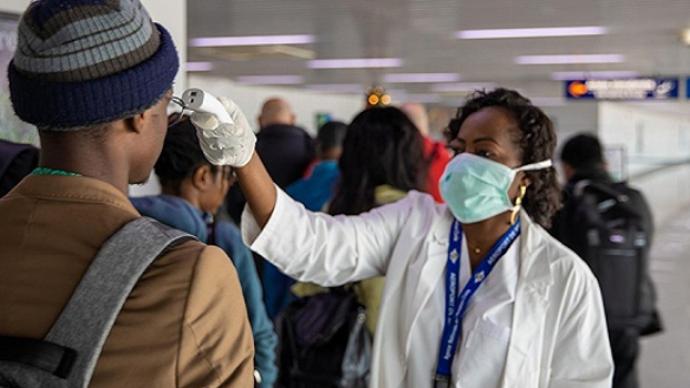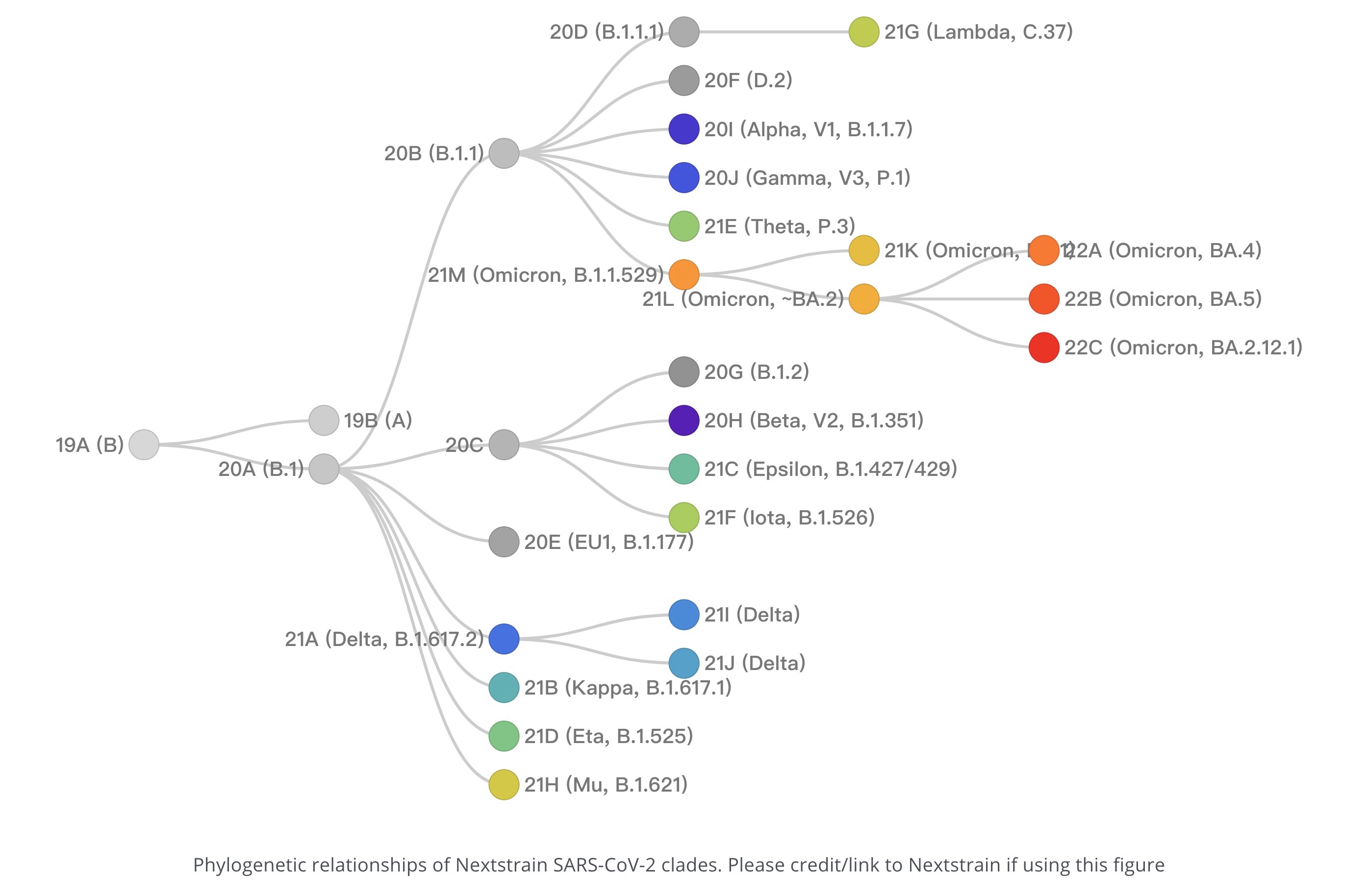
Recently, the international authoritative medical journal "The Lancet" published a review entitled "Where is the next SARS-CoV-2 variant of concern?" (Where is the next SARS-CoV-2 variant of concern?) . Comments suggest that an immunocompromised person infected with the new coronavirus may be evolving a new coronavirus variant: it is highly contagious and can challenge existing immunity and treatments.
This review article brings together many big names in virus research, including Ravindra K Gupta of Cambridge University, Thomas P Peacock of Imperial College London, UK, and William Hanage of Harvard School of Public Health. Wait. The commentary said that the new crown pandemic is characterized by waves of new variants of the virus sweeping the world. The ultimate source of these variants is uncertain, but preliminary evidence suggests that at least some of the variants came from chronically infected people with the new coronavirus, such as those who are immunocompromised. This phenomenon can be observed in them.
The comments call for the most urgent global task at the moment to provide high-quality health care for those chronically infected with the new coronavirus, and to prioritize curative treatment for them. Failure to properly manage these chronic infections of COVID-19 poses risks to personal and public health.
The Lancet article explains that people who are immunocompromised, such as HIV-infected patients or recipients of organ transplants, may have difficulties with their immune systems to eliminate persistent infection with the new coronavirus. Preliminary data suggest that SARS-CoV-2 infection in immunocompromised patients typically persists for months, and over time, SARS-CoV-2 continues to acquire new mutations as they may evade immune-mediated neutralization and hone their The ability to infect human cells.
At the same time, because the size of the virus population in persistent infection in immunocompromised patients is not limited by transmission bottlenecks, the new coronavirus mutates at an accelerated rate compared to the general population, so this persistent mutation usually allows the virus to produce a sizeable gene. novelty. Although evolutionary pressures for viruses within a single host may differ from adaptations for transmission between hosts, it is reasonable to assume that the next 'variant of concern (VOC)' may come from a highly genetically diverse, drug-resistant population of infected individuals.
The authors give an example, the "variant of concern (VOC)" Alpha (Alpha, B.1.1.7) appeared in the UK, and even comparing the most recent common ancestral strain with Alpha, Alpha showed a high degree of difference: it accumulated a series of Mutations with worrisome properties came at a faster rate than other Covid-19 variants of the time.
Back in June 2020, Gupta, a virologist at the University of Cambridge, noticed something similar. One of the patients he treated at the time was admitted to the hospital with new coronary pneumonia a month ago, and continued to detox during the hospitalization. The patient had previously been treated with rituximab for a recurrence of lymphoma, a drug that depleted his antibody-producing B cells, making it difficult for him to fight a persistent infection with the new coronavirus.
Gupta, who has studied HIV drug resistance, got curious about this particular Covid-19 case, which he tried to treat. Despite being given the antiviral drug remdesivir and two rounds of plasma therapy, the patient died in August 2020, 101 days after diagnosis. When Gupta studied the genome sequence of the new coronavirus in this patient, he found that the virus had acquired a series of mutations that may have given it a greater ability to escape from the immune system. Gupta immediately published the research results in the form of a paper, which has become an important reference for researchers in various countries trying to understand the origin of alpha.
Gupta gave the world a wake-up call at the time: the need to pay attention to the potential role of immunocompromised people in the new crown pandemic. If this population provides an opportunity for SARS-CoV-2 to evolve lineages that spread faster and are more pathogenic, these chronic SARS-CoV-2 infections not only pose a danger to patients, but could also alter the course of the pandemic. process.
However, nearly two years later, the situation has not changed. Generation after generation of new variants suddenly rose from inconspicuous positions on the evolutionary tree and quickly replaced the previous "variant of concern (VOC)", sweeping the world. When the globally prevalent strain of Delta (B.1.617.2) almost dominated the country, its distant relative Omicron (B.1.1.529) had about 45 mutations, which made Omicron with it. The ancestral strains are separated. The previous beta (beta, B.1.351) and gamma (gamma, P.1) were also isolated from their most recent ancestor strains and also had many mutations.
When the globally prevalent strain of Delta (B.1.617.2) almost dominated the country, its distant relative Omicron (B.1.1.529) had about 45 mutations, which made Omicron with it. The ancestral strains are separated. The previous beta (beta, B.1.351) and gamma (gamma, P.1) were also isolated from their most recent ancestor strains and also had many mutations.
It is worth noting that Delta originated in India, and Omicron originated in South Africa. The public health conditions in both countries need to be improved, and there is a lack of continuous monitoring of viral genome sequences. South Africa has the largest number of immunocompromised people in the world - people living with HIV. Available data show that there are 7 million AIDS carriers in South Africa, accounting for about 13% of the country's population.
The Lancet's review concludes with a call: It is critical to cure immunocompromised individuals with Covid-19 as they may carry the next variant of Covid-19, a new variant that is highly contagious and challenges existing immunity and therapy.
World Health Organization epidemiologist Maria van Kerkhove also previously said that all countries should do what they can to minimize the spread of the new coronavirus. "The more the virus spreads, the greater the chance it will mutate," Maria van Kerkhove said. "We're playing a very dangerous game."
This review article brings together many big names in virus research, including Ravindra K Gupta of Cambridge University, Thomas P Peacock of Imperial College London, UK, and William Hanage of Harvard School of Public Health. Wait. The commentary said that the new crown pandemic is characterized by waves of new variants of the virus sweeping the world. The ultimate source of these variants is uncertain, but preliminary evidence suggests that at least some of the variants came from chronically infected people with the new coronavirus, such as those who are immunocompromised. This phenomenon can be observed in them.
The comments call for the most urgent global task at the moment to provide high-quality health care for those chronically infected with the new coronavirus, and to prioritize curative treatment for them. Failure to properly manage these chronic infections of COVID-19 poses risks to personal and public health.
The Lancet article explains that people who are immunocompromised, such as HIV-infected patients or recipients of organ transplants, may have difficulties with their immune systems to eliminate persistent infection with the new coronavirus. Preliminary data suggest that SARS-CoV-2 infection in immunocompromised patients typically persists for months, and over time, SARS-CoV-2 continues to acquire new mutations as they may evade immune-mediated neutralization and hone their The ability to infect human cells.
At the same time, because the size of the virus population in persistent infection in immunocompromised patients is not limited by transmission bottlenecks, the new coronavirus mutates at an accelerated rate compared to the general population, so this persistent mutation usually allows the virus to produce a sizeable gene. novelty. Although evolutionary pressures for viruses within a single host may differ from adaptations for transmission between hosts, it is reasonable to assume that the next 'variant of concern (VOC)' may come from a highly genetically diverse, drug-resistant population of infected individuals.
The authors give an example, the "variant of concern (VOC)" Alpha (Alpha, B.1.1.7) appeared in the UK, and even comparing the most recent common ancestral strain with Alpha, Alpha showed a high degree of difference: it accumulated a series of Mutations with worrisome properties came at a faster rate than other Covid-19 variants of the time.
Back in June 2020, Gupta, a virologist at the University of Cambridge, noticed something similar. One of the patients he treated at the time was admitted to the hospital with new coronary pneumonia a month ago, and continued to detox during the hospitalization. The patient had previously been treated with rituximab for a recurrence of lymphoma, a drug that depleted his antibody-producing B cells, making it difficult for him to fight a persistent infection with the new coronavirus.
Gupta, who has studied HIV drug resistance, got curious about this particular Covid-19 case, which he tried to treat. Despite being given the antiviral drug remdesivir and two rounds of plasma therapy, the patient died in August 2020, 101 days after diagnosis. When Gupta studied the genome sequence of the new coronavirus in this patient, he found that the virus had acquired a series of mutations that may have given it a greater ability to escape from the immune system. Gupta immediately published the research results in the form of a paper, which has become an important reference for researchers in various countries trying to understand the origin of alpha.
Gupta gave the world a wake-up call at the time: the need to pay attention to the potential role of immunocompromised people in the new crown pandemic. If this population provides an opportunity for SARS-CoV-2 to evolve lineages that spread faster and are more pathogenic, these chronic SARS-CoV-2 infections not only pose a danger to patients, but could also alter the course of the pandemic. process.
However, nearly two years later, the situation has not changed. Generation after generation of new variants suddenly rose from inconspicuous positions on the evolutionary tree and quickly replaced the previous "variant of concern (VOC)", sweeping the world.
 When the globally prevalent strain of Delta (B.1.617.2) almost dominated the country, its distant relative Omicron (B.1.1.529) had about 45 mutations, which made Omicron with it. The ancestral strains are separated. The previous beta (beta, B.1.351) and gamma (gamma, P.1) were also isolated from their most recent ancestor strains and also had many mutations.
When the globally prevalent strain of Delta (B.1.617.2) almost dominated the country, its distant relative Omicron (B.1.1.529) had about 45 mutations, which made Omicron with it. The ancestral strains are separated. The previous beta (beta, B.1.351) and gamma (gamma, P.1) were also isolated from their most recent ancestor strains and also had many mutations.It is worth noting that Delta originated in India, and Omicron originated in South Africa. The public health conditions in both countries need to be improved, and there is a lack of continuous monitoring of viral genome sequences. South Africa has the largest number of immunocompromised people in the world - people living with HIV. Available data show that there are 7 million AIDS carriers in South Africa, accounting for about 13% of the country's population.
The Lancet's review concludes with a call: It is critical to cure immunocompromised individuals with Covid-19 as they may carry the next variant of Covid-19, a new variant that is highly contagious and challenges existing immunity and therapy.
World Health Organization epidemiologist Maria van Kerkhove also previously said that all countries should do what they can to minimize the spread of the new coronavirus. "The more the virus spreads, the greater the chance it will mutate," Maria van Kerkhove said. "We're playing a very dangerous game."
Related Posts
0 Comments
Write A Comments